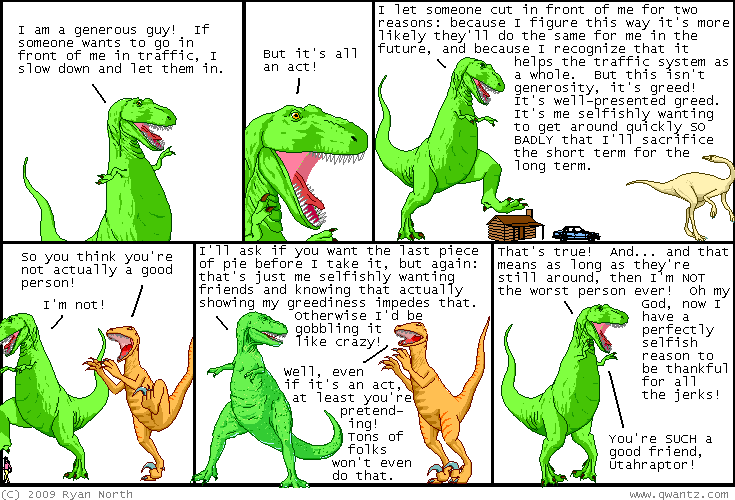It has been said that sometimes the fastest way to enjoy a book is to not read it. You look at the introduction, the table of contents, maybe read an interesting section or two and move on to your next book…
That’s exactly what I did with
Paradox of Choice – Why More Is Less by Barry Schwarz. Don’t get me wrong, it’s an interesting premise. It’s just not really new to me. The book is divided into four parts: When We Choose; How We Choose; Why We Suffer; and What We Can Do. The first three were pretty obvious, and further backed up by comments in the final section. And I had already had the first three sections summed up by reading
I’m a Stranger Here Myself by Bill Bryson and
Trading in the Zone by Mark Douglas.
Part four confirmed my thoughts about the first three sections – and I do agree that we have too many choices in the US. And it certainly seems logical that it becomes harder to make a decision, leading to analysis paralysis, and then to buyer’s remorse when you hear someone else’s tale. So I didn’t need to be convinced, and What We Can Do was the section that really interested me.
So I was rather disappointed with what I found here. He puts forth 11 steps to lessen or cut out the suffering that too much choice can create, and I found most of them almost as negative as the problem and/or not going far enough. Let me write them in a somewhat less positive light than he did, then again in a more Aware manner afterwards:
1. Make it a rule to ignore most choices out there, as those choice probably aren’t much better than the ones you’ve already looked at. Probably…
2. Don’t limit yourself to the choices presented. Think outside the box if none of the current choices look that good. And they won’t since you’re ignoring most of them…
3. Learn to accept “good enough”.
4. Don’t try new things. Stick to what is “good enough” until enough friends tell you what you’ve been missing.
5. Don’t be willing to admit you could have chosen better.
6. Be grateful for what you have.
7. Don’t regret or relive past decisions. ( But what about, “Those who ignore the past are destined to repeat it.”)
8. Realize that your satisfaction will drop, so be ready for it.
9. Don’t expect too much.
10. Don’t talk to friends about their experiences – you’ll probably feel worse.
11. Learn to love constraints.
Ugh! Now, I worded those in a more negative way than he did, but that’s really his list, paraphrased!
Is this really the best we can do? What about ‘Try all we can while we’re young, and learn what we like so we can be more discriminatory later’? Or, as promised, a more conscious, Aware list:
1. When choosing, follow your heart. If one choice seems superior, let that feeling guide you. (Perhaps test this for a while to develop your ability to sense your intuition.)
2. If no choice feels right, look for a deeper reason – either you will have to create your own choice, or you should not choose any!
3. Be satisfied with your choice. Allow it to be the best for you (in terms of value, cost, and time saved from agonizing over choices).
4. Practice an attitude of gratitude in all things – possessions, friends, your environment, etc.
5. Realize your wanting mind will create dissatisfaction. Know that this dissatisfaction exists only in your mind, and will not change based on your possessions.
6. Be delighted in your friends’ fortunes, not jealous. Share in their happiness, and you now have the happy experience without the expense!
To wrap up, the concept and lessons of the book are sound. I would definitely recommend a good skim at least. The book is certainly worthwhile for introducing its concept and putting together a new overall idea. But I have read most of the message before, and I think Barry Schwarz doesn’t go deep enough with his solution.


